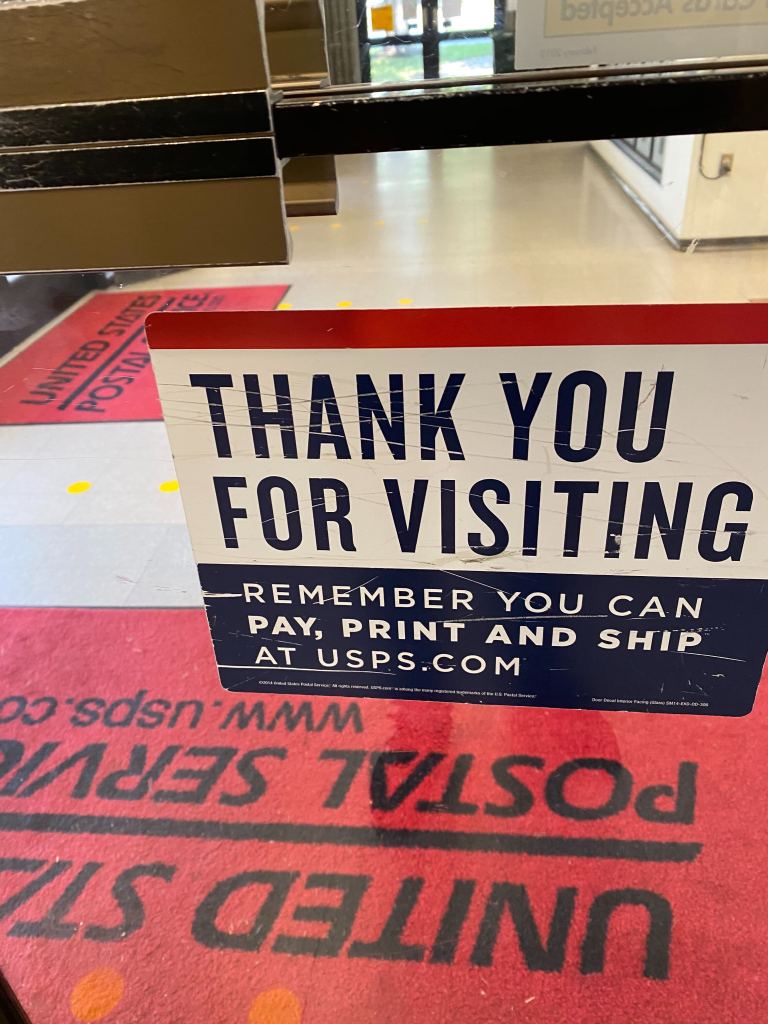Memos are trickling down the United States Postal Service bureaucracy warning employees that they should not speak to the press and any customer asking lots of questions may be a journalist sneakily trying to get information out of them.
The memos outline what employees should do if contacted by the media, and are titled “Guidelines for Handling Local Media Inquiries.” Motherboard obtained two separate memos from postal employees in two districts. The memos are nearly identical, with different language only about who employees should contact if they receive a media inquiry. They were sent to employees in the last few days, following a spate of articles about the changes Postmaster General Louis DeJoy has made that have put the post office under major scrutiny.
Videos by VICE
“The Postal Service continuously strives to project a positive image, protect its brand, and present a unified message to the customers and communities it serves,” the memo begins. “It is imperative that one person speaks on behalf of the Postal Service to deliver an appropriate, accurate and consistent message to the media.”
“Avoid the temptation to ‘answer a few questions,’” the memo advises. “Keep in mind that, while most media representatives will identify themselves up front, sometimes they do not. If you are dealing with a customer, especially one who asks a series of questions, it is perfectly appropriate to ask, ‘Are you a member of the media?’ Asking this specific question will help ensure your interaction is not used as the basis for any kind of ‘official’ Postal Service statement or position.”
The memo misleadingly frames identifying oneself as a reporter when seeking information as a choice most reporters make but others don’t. It is broadly regarded across the journalism industry to be unethical to conceal one’s identity as a reporter when seeking information in a professional capacity except in extreme cases where it is otherwise not possible to gather information in the public interest, a condition which obviously doesn’t apply to the USPS.
It also seems to suggest that asking questions is itself suspicious behavior, a line at odds with the deep concern many Americans have over the future of the postal service. In recent days, two Motherboard employees separately went to their respective post offices for personal reasons and overheard other customers asking the clerks about the state of the post office, seemingly out of normal human concern for working conditions at a critical public service. (Ironically, per these guidelines, the clerks ought to have asked these ordinary customers if they were members of the media in front of two members of the media trying to mail things.)
The memos also include a curious line that seems to conflate the different types of publications reporters work for and social media networks. “If you are contacted by a media representative for official comment, including, but not limited to: newspapers, radio, television, and social media such as Twitter and Facebook; follow the steps below,” the Appalachian District’s memo reads. The Greater Michigan District’s memo likewise says “Here are our district guidelines for how to handle media requests for official comment, including newspapers, radio, television, and social media such as Twitter and Facebook.” It’s not clear why Twitter and Facebook are mentioned here.
It is all too common for organizations public and private to remind employees they are not authorized to speak to the media. Instead, they urge them to direct reporters through official channels to, as the USPS put it, “protect its brand.”
But well-run organizations don’t try and stop employees from talking, an especially fruitless endeavor for the USPS which has a 630,000-strong heavily unionized workforce. Typically, well-run organizations try and fix the problems the employees are talking about instead.
If you’re an employee with the USPS and know something the public ought to know, my email is aaron.gordon@vice.com and here are instructions on how to contact me securely. One of the best ways to do so is to send me a letter. In the mail.
Subscribe to The Mail, Motherboard’s newsletter about the USPS, voting security, and democracy.




